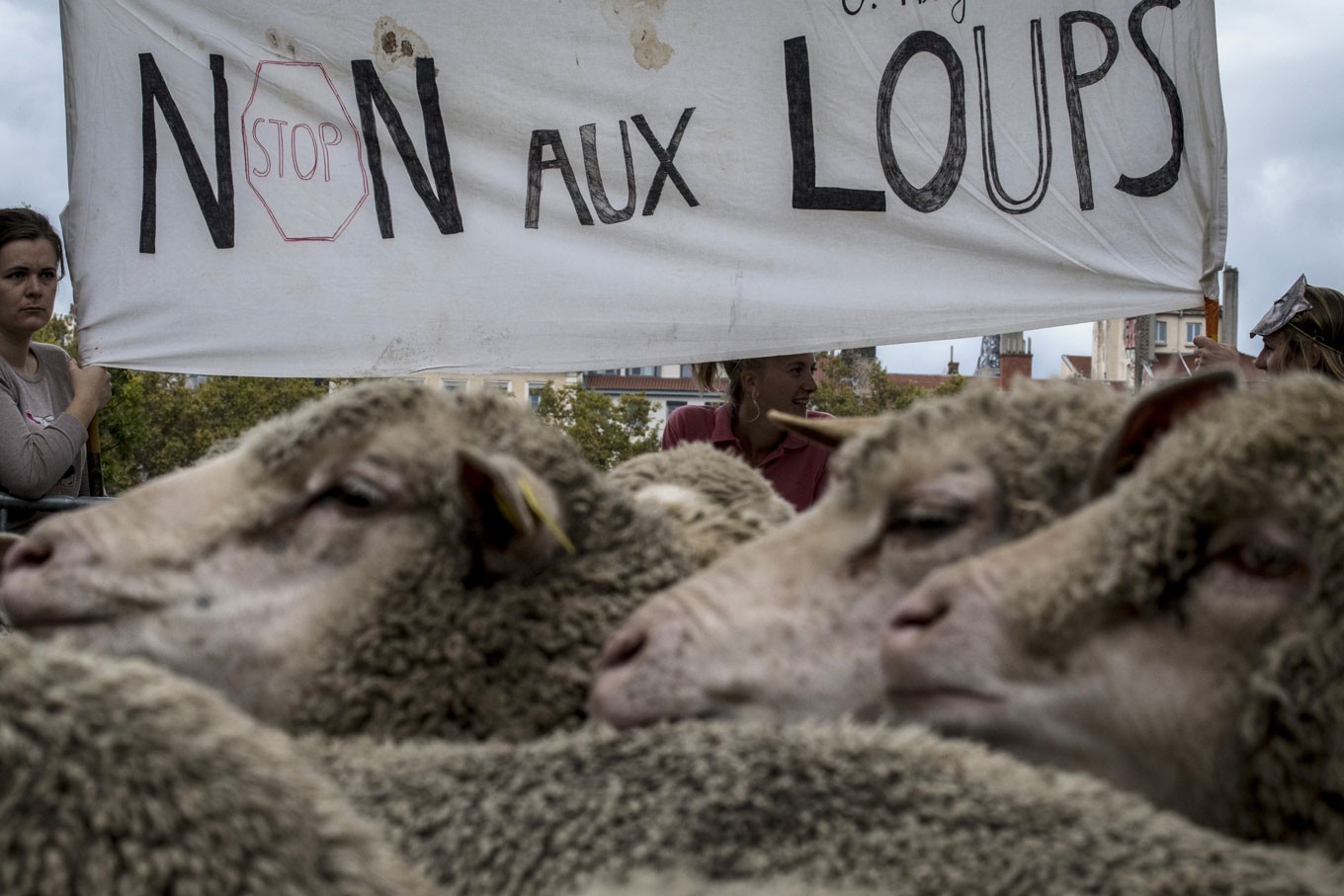Popular Reads
Top Results
Can't find what you're looking for?
View all search resultsPopular Reads
Top Results
Can't find what you're looking for?
View all search resultsFrance's 'wolf brigade': Alps guards with licence to kill
Starting in 1992, grey wolves started re-appearing in France, arriving across the Alps from Italy, which has rejected calls for a cull of its flourishing population of the fanged mammals.
Change text size
Gift Premium Articles
to Anyone
A
s the sun sets over the southern French Alps on a cool evening in early June, a flock of sheep huddle in an enclosure at an altitude of 1,500 meters.
Next to them, two khaki-clad watchmen settle down for the night in the Mercantour National Park on the border with Italy, equipped with thermal-vision cameras, warm jackets and a rifle with a night-vision scope.
"What's going to be important for the next few hours is to be attentive all the time. For a wolf to cross [the pass] takes two or three seconds. If we aren't watching, it's over," one of the guards said.
The pair are part of France's "wolf brigade", employed by the state to protect livestock from a predator that was hunted to extinction in France in the early 20th century but is now making a grand comeback.
Starting in 1992, grey wolves started re-appearing in France, arriving across the Alps from Italy, which has rejected calls for a cull of its flourishing population of the fanged mammals.
Seventeen years after their return, the population in France is growing fast, rising from an estimated 360 last year to 530, according to the national hunting and wildlife agency (ONCFS), which uses information gathered by 4,000 observers nationwide.
While their numbers are only a fraction of those found in Italy, Spain Romania or Poland, the predators have raised the hackles of farmers, with some 3,674 wolf attacks reported in 2018 alone, mainly on sheep.
Faced with the outcry from sheep farmers, the government has announced plans to nearly double the annual cull quota, from 53 this year to around 100 next year.
"We now consider that the wolf is no longer a species at risk of extinction," Agriculture Minister Didier Guillaume said last week, adding that the government's priority was now to protect farmers' livelihoods.
'At the end of their tether'
The killing of wolves is outlawed across most of the EU, with culls allowed only under strict conditions where there is no "satisfactory alternative".
France has since 2004 authorized the killing of small numbers of wolves but the predator remains a threatened species.
The wolf brigade was scrambled to the Mercantour Park earlier this month after three recent attacks on sheep grazing in the park in broad daylight.
Created in 2015, the 11-strong team employs youths with hunting skills and knowledge of wildlife management, who intervene in places where traditional anti-wolf measures, such as dogs, fencing off areas and additional shepherding, have failed.
The brigade also trains volunteer "wolf catchers" with hunting licenses.
Most of the brigade's work is in mountain pastures, the areas most affected by wolf attacks that cost the state millions of euros each year in compensation.
Their presence in an area allows shepherds to "breathe a little", said one of the guards, who did not wish to be identified for fear of being targeted by animal rights activists.
"In some places, they're at the end of their tether," he told AFP, referring to the farmers.
But animal protection groups too are up in arms.
The activists have criticised the rising cull targets and urged the government to experiment with new ways to protect livestock, such as frightening the wolves or only lightly injuring them, instead of killing them outright.
The ONCFS is studying the effects of the cull, to measure whether it is reducing the number of attacks or scattering packs of the predators.
But Michael Viale, a farmer whose flock has been repeatedly targeted, believes there can be no cohabiting with the "terrorists of the mountains".
"My sheep used to sleep soundly -- and so did I. We didn't have to coop them up at night. I didn't need a shepherd or dogs or this brigade", he said.
The wolf brigade "understands our pain", Viale said.
But high demand for the guards means they cannot stay keeping watch over his flock all night.
Plus, the wolf is wily. After a week, the brigade left the Mercantour, with no reported sighting.










